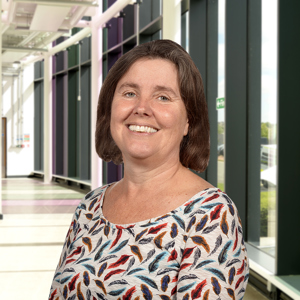Helena Clements: Workforce and a net zero NHS
Another year and much to do. I have been thinking quite a lot about the importance of building a multi-professional workforce. This will accelerate us towards a net zero NHS and develop a vision of a healthier, low-carbon future. We have been lucky enough to get funding for two more climate/ net zero fellows for 2 AHPs/ nurses/ pharmacists. It will be exciting to see who applies this time.
Our current fellows are halfway through their year and have had successes with climate literacy and staff engagement. They have also progressed with projects including:
- walking aids
- recycling
- reducing the use of IV paracetamol in pre-op and ED
- introducing cool sticks to replace ethyl chloride spray
- nudging patients on the ward to choose healthier, low-carbon food options.
They have presented at specialty conferences and regularly give updates on our comms channels.
I currently have a medical student who has chosen climate action as her special student module (SSM) for the next month. She has learnt to make soup and hummus from first principals and has been inspired to plant a fruit bush in her parents’ garden. She has joined me in local, regional, and national meetings. Her reading has included there is no planet B by Mike Berners-Lee and e-learning for health modules on Building a net zero NHS and Sustainable QI.
In February I have a meeting with one of the directors of medical education at the University of Nottingham. We'll discuss getting sustainability more solidly into the undergraduate curriculum. My student is writing an essay with suggestions about what should go into it. Currently our students just get 2 hours of climate teaching in year 4.
Don’t we need to prepare the next generation to be resilient in a world deeply affected by climate change? And give them a hopeful vison of a low carbon future personally and professionally?
When we talk about workforce planning, we need to be thinking now about what our workforce might look like. And what skills they will need going forward. Everyone will need to think about the triple bottom line. We'll evaluate every intervention against what is good for patients and what is good for the planet. This means every bit of the NHS. Where I have talked about the medical undergraduate curriculum, read pharmacy, nursing, midwifery, AHP, paramedics, IT and data specialists, our biomedical scientists, engineers, builders. And what about our farmers? Everything we do impacts on our health and wellbeing in one way or another. We need to teach and prepare our workforce for this.
Further resources

